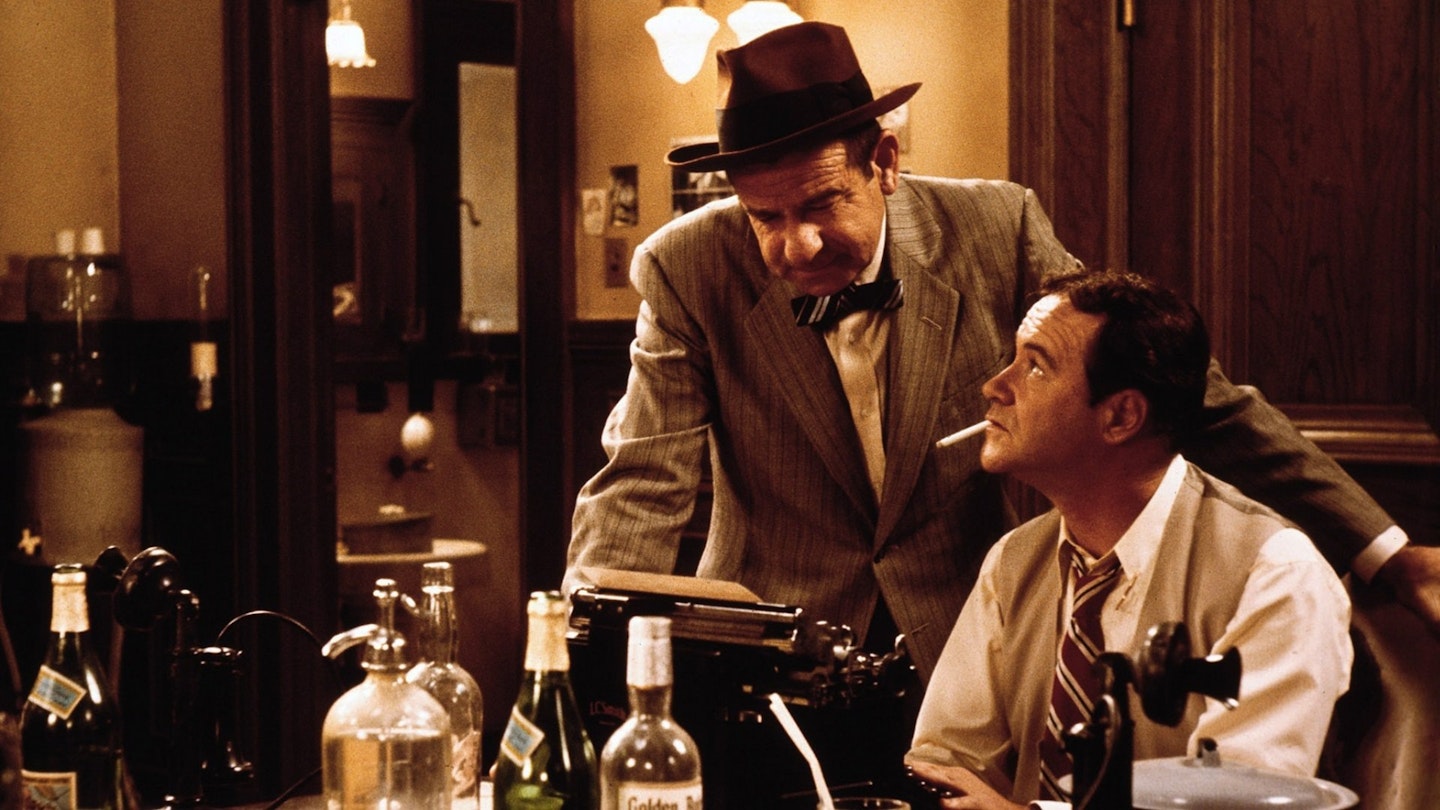In many ways, Ben Hecht and Charles MacArthur resembled the screen personas of Walter Matthau and Jack Lemmon, who fittingly headlined Billy Wilder's take on their 1928 Broadway smash. Reporters on rival Chicago newspapers in the 1920s, Hecht was a hard-boiled cynic, while MacArthur aspired to refinement and their contrasting temperaments clearly informed this tale of an editor who will sink to any depths to keep his star writer and beat his rivals to a scoop.
Although he had previously analysed the dismal opportunism of the media in Ace in the Hole and recalled the romanticised lawlessness of the Jazz Age in Some Like It Hot, Wilder never felt wholly comfortable with adapting this landmark screwball, which was produced, in part, to cash in on the success of The Sting.
The play had twice been filmed before - by Lewis Milestone in 1931 (with the Oscar-nominated Adolphe Menjou and Pat O'Brien) and by Howard Hawks as His Girl Friday, which starred Cary Grant and Rosalind Russell and added a sexual frisson to the action by turning Hildy Johnson into a woman. But Wilder had never been impressed with either version and was keen to restore the virile newsroom language that had been toned down to appease the Hays and Breen Offices.
Revelling in the Machiavellian scheming and acerbic quips, Matthau turned in a scathingly comic performance. But Lemmon struggled to shake off past characters like J.J. Poindexter, Harry Hinkle and Felix Ungar and, thus, he feels less like a bitten hack than David Wayne and Charles Durning.
But, while their rat-a-tat byplay still seemed slick, Watergate and Vietnam had made America a harder-nosed placed than it had been even during Prohibition and the Depression and the cutting edge of Hecht and MacArthur's satire had largely been blunted. The times were better, or we were a little bit more naive,' Wilder later lamented. We laughed easier.'
